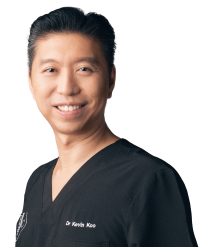Minimally Invasive Bunion
Surgery Treatment
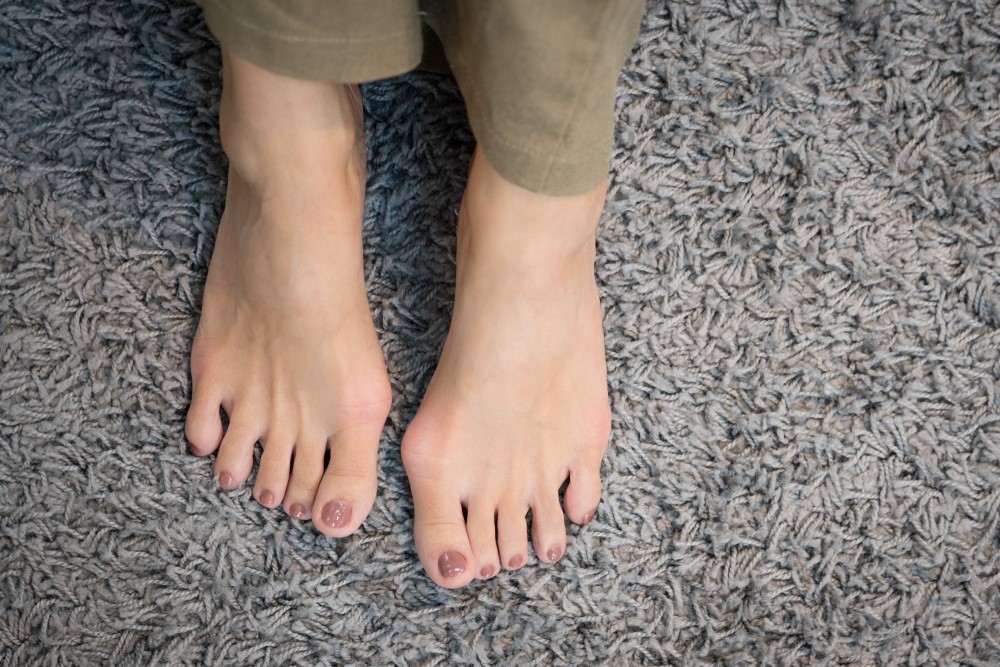
A bunion is a bony bump that develops at the base of the big toe joint (called the metatarsophalangeal joint) as the big toe deviates outwards towards the second toe.
While the exact cause of bunions is still unknown, there are factors that increase one’s risk of developing them, such as:
- Wearing high heels, or tight or ill-fitting shoes
- Family history of bunions
- Flatfoot (pes planus)
- Rheumatoid arthritis
- Generalized ligamentous laxity
Much more than just a cosmetic problem, bunions are a foot deformity that worsen with time. Bunions may also be accompanied by other symptoms, including pain, redness, swelling and tenderness in the area around the big toe joint. Patients may find it increasingly difficult to find fitting footwear or walk comfortably.
As bunions do not go away on their own, it is highly recommended to seek prompt bunion treatment in Singapore before it worsens further. Non-invasive treatment can be offered by your bunion doctor as a first line. However, if symptoms persist, then surgery would be the most effective and definitive mode of treatment. If performed early while the bunion is at the mild to moderate stage, minimally-invasive keyhole technique can be used, which allows for smaller scars, reduced post-operative pain, reduced wound complications and faster recovery.
Bunion treatment in Singapore will depend on the severity of the condition. In mild cases, conservative options may first be recommended:
- Changing shoes – Wearing high heels, narrow-toed shoes or ill-fitting shoes for a prolonged period causes overcrowding in the toes. Comfortable shoes with wider toe-boxes can help relief discomfort.
- Medications – Pain relievers and nonsteroidal anti-inflammatory drugs (NSAIDs) may be prescribed to reduce pain and swelling.
- Padding – Pads act as a cushion between the bunion and the shoe, preventing friction and pressure that can cause pain.
- Toe spacers – These are silicone or gel devices that are placed between the toes to keep them from rubbing or leaning against each other.
- Splints – These orthotic devices help the big toe remain in a straight position, preventing it from leaning toward the smaller toes.
However, do note that these methods only provide symptomatic relief and does not prevent worsening of the deformity. They also do not correct the deformity. Should pain persist and your mobility be compromised, your bunion surgeon in Singapore may recommend bunion surgery as a definitive way to remove bunions safely.
Bunion surgery achieves 2 aims:
- Removing the painful bump at the base of the big toe
- Straightening the big toe
Such procedures can either be done through keyhole or traditional open surgery, depending on the severity and stage of the deformity.
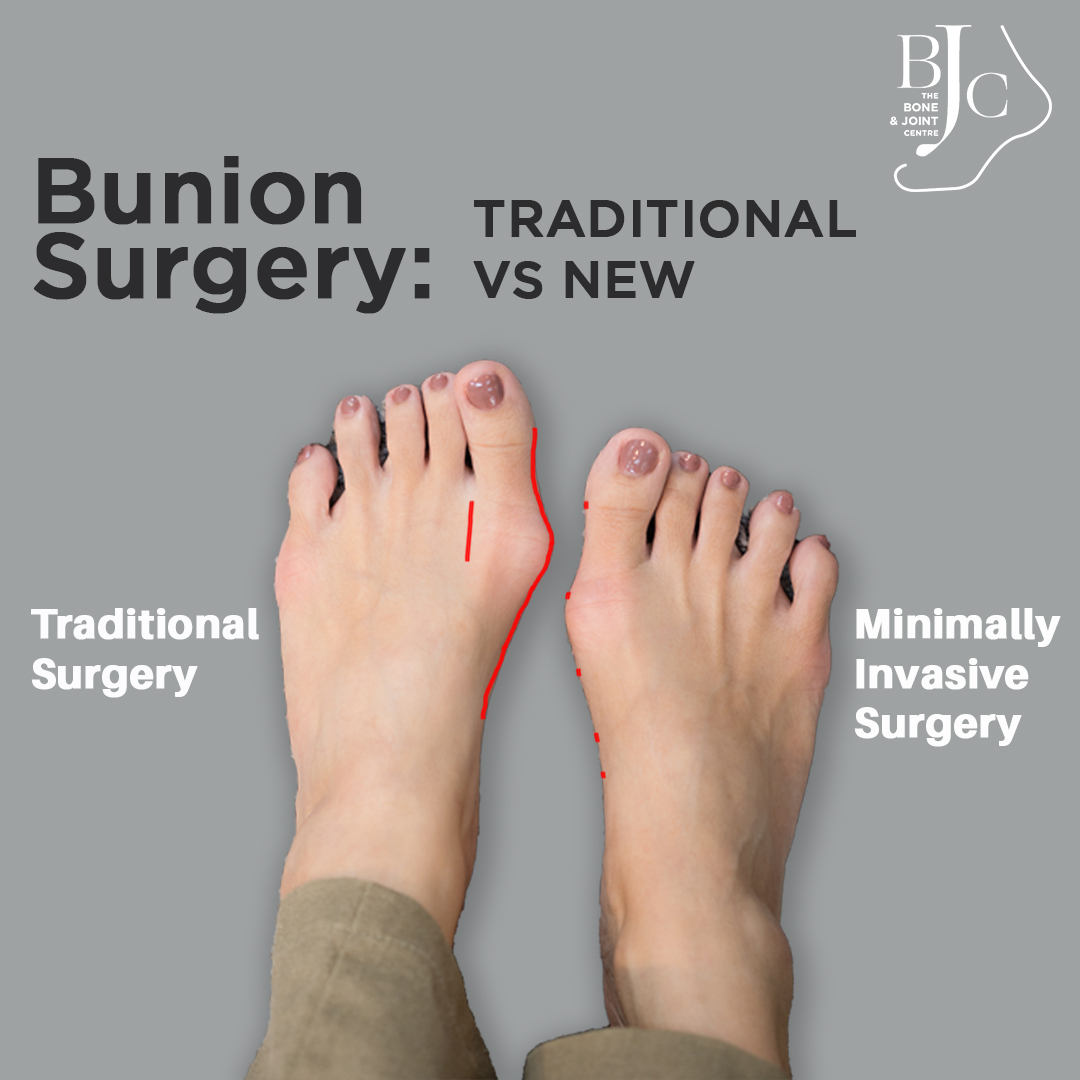
Mild to moderate or early-stage bunions are suitable for minimally invasive bunion surgery, which is less painful, has a lower wound complication rate and leads to faster recovery as compared to traditional open surgery. Severe or late-stage bunions are more suited to open traditional surgery.
In many cases, however, bunion surgery in Singapore can be performed through the minimally invasive technique. In minimally invasive keyhole bunion surgery, the procedure is done via tiny incisions using fine surgical instruments to remove the bunion as well as to straighten the big toe. Your Singapore bunion surgeon will advise you accordingly on the best mode of treatment for your condition.
Should you experience signs and symptoms of a bunion that is affecting your quality of life, do not hesitate to get it treated. Early treatment leads to better outcomes, so do consult your foot and ankle doctor promptly.
FRCSEd (Orth), FAMS
Dr Kevin Koo is an experienced bunion surgeon with over 20 years of experience in the non-surgical and surgical treatment of bunions. Dr Koo completed a fellowship at St. Mary's and Charing Cross Hospitals, Imperial College Healthcare in London, UK, where he worked with internationally recognised orthopaedic surgeons and treated professional athletes and dancers.
Dr Koo's dedication to the field is evident in his numerous accolades and his former role as Director of Foot and Ankle Service at Singapore General Hospital. He also actively contributes to advancements in foot and ankle surgery through his published research in numerous peer-reviewed medical journals.
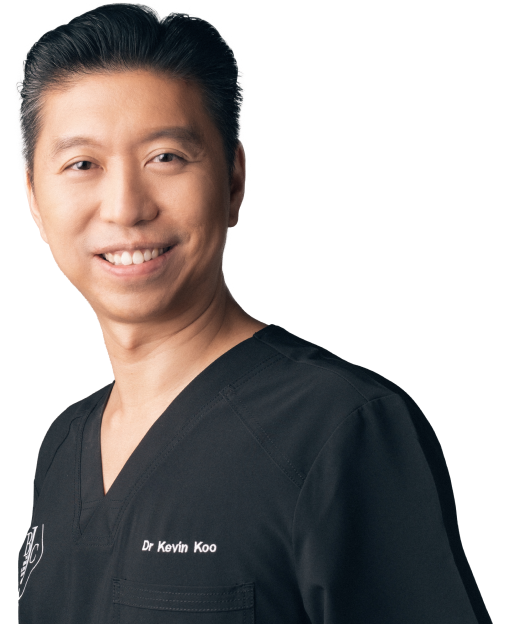

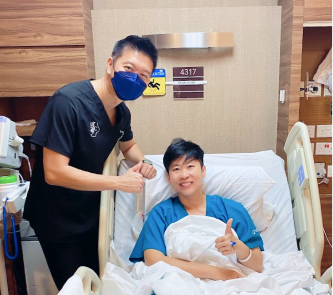
| Tel. | : +65 6970 5905 |
| Fax | : +65 6970 5906 |
| Mobile | : +65 9898 7781 |
| : hello@bjc.sg, drkevinkoo@bjc.sg |
| Mon - FriMonday -Friday | : 8:30am to 5:30pm |
| Sat, Sun and PHSaturday, Sunday & PH | : Closed |
Well-being: Our Focus at
The Bone & Joint Centre.
We know that getting back to the activities you love is what truly matters. We are committed to providing high-quality, compassionate care to help you regain the ability to live life to the fullest.
Call us at 9898 7781 or fill out the form below and we will
get in touch as soon as possible.
| Tel. | : +65 6970 5905 |
| Fax | : +65 6970 5906 |
| Mobile | : +65 9898 7781 |
| : hello@bjc.sg, drkevinkoo@bjc.sg |
| Mon - FriMonday -Friday | : 8:30am to 5:30pm |
| Sat, Sun and PHSaturday, Sunday & PH | : Closed |

